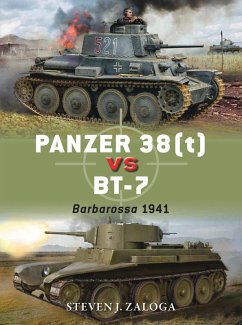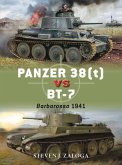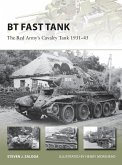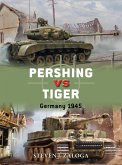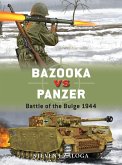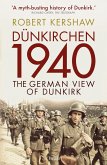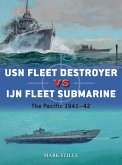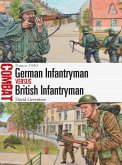The tank battles in the Soviet Union during the summer of 1941 were the largest in World War II, exceeding even the more famous Prokhorovka encounter during the Kursk campaign. Indeed, they were the largest tank battles ever fought.
This book examines two evenly matched competitors in this conflict, the German Panzer 38(t) and the Soviet BT-7. Both were of similar size, armed with guns of comparable firepower, and had foreign roots - the Panzer 38(t) was a Czechoslovak design and the BT-7 was an evolution of the American Christie tank. With full-colour artwork and archive and present-day photography, this absorbing study assesses the strengths and limitations of these two types against the wider background of armoured doctrine in the opening stages of Operation Barbarossa.
This book examines two evenly matched competitors in this conflict, the German Panzer 38(t) and the Soviet BT-7. Both were of similar size, armed with guns of comparable firepower, and had foreign roots - the Panzer 38(t) was a Czechoslovak design and the BT-7 was an evolution of the American Christie tank. With full-colour artwork and archive and present-day photography, this absorbing study assesses the strengths and limitations of these two types against the wider background of armoured doctrine in the opening stages of Operation Barbarossa.

